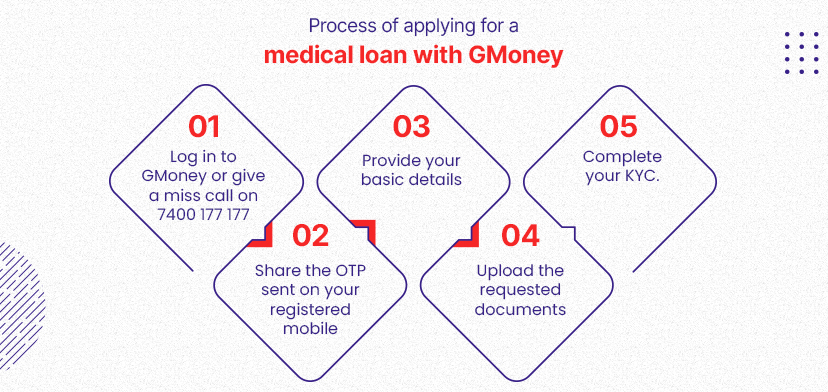Home » Hernia Surgery Options in Chennai: Which Procedure is Right for You?

Before preparing for hernia surgery, it’s vital to have a complete awareness of what to expect before, during, and after the treatment. To ensure that your operation is successful, safe, and comfortable for you, speaking with your doctor is crucial. Your doctor can provide advice on the various hernia surgery procedures, potential complications that might arise, risks, aftercare, and required preparations.
To reduce risks and increase the likelihood of a successful outcome, your surgeon will give you detailed advice on how to get ready. It’s crucial to gain as much knowledge as you can about what to anticipate before, during, and after hernia surgery. It might assist to ensure a quick and good recovery if you take the time to educate yourself and get ready for your surgery.

Overview
Hernias happen when an organ or tissue bulges through a weaker region in the muscle or connective tissue. Hernias can happen everywhere in the body, but they are most usually discovered in the abdominal wall, where they can make internal organs like the intestines protrude.
Inguinal, umbilical, and incisional hernias are the most typical types of hernias, and they typically happen in the groin, belly button, or the location of a prior surgical incision.
By knowing the nature of hernias, you can take proactive efforts to prevent them or seek immediate medical assistance when necessary.
There are several types of hernia surgery, including
Choosing the right surgery
The location, type, and patient’s health situation, as well as their personal preferences, must all be taken into account while determining the best course of action for hernia surgery. An extensive incision is made during open surgery, which is the conventional method for hernia repair.
Contrarily, laparoscopic hernia surgery is a minimally invasive procedure that treats the hernia using tiny incisions and specialised tools. Less scarring and a quicker recovery are the outcomes of this technique. Moreover, “robotic surgery,” which enables precise instrument manipulation, can be used in conjunction with laparoscopic surgery to help complete the procedure.
According to Dr Gunjan Dodwani surgery is the only cure for hernia and is completely curable. Watch this video to know more.
There are two main methods for fixing hernias: open surgery and laparoscopic surgery. In open surgery, the hernia is repaired with stitches or surgical mesh after the physician makes an incision to access it.
Laparoscopic surgery, on the other hand, is a less invasive procedure that only requires a few tiny abdominal incisions. The hernia is then repaired using specialised instruments.
The size and kind of the hernia determine whether open surgery or laparoscopic surgery is preferred. To identify which choice is best for each patient, speaking with a doctor is essential.

Pre-surgery appointment: You will meet with your surgeon for a pre-operative appointment before having hernia surgery. Your surgeon will evaluate your medical history, perform a physical exam, and go over the surgical procedure in great detail with you during this consultation. In addition, they will answer any queries or concerns you may have and go over the potential advantages and hazards of the procedure.
Pre-surgery tests: The surgeon will order a number of tests before the surgery, including blood, urine, chest x-rays, MRIs, and ECGs. These tests can help determine whether you are healthy overall and a good candidate for the procedure.
Pre-surgery diet: Your surgeon might suggest following a certain diet before surgery to improve recovery and reduce the possibility of problems. You can be told to limit your intake of a certain nutrient or to refrain from ingesting certain meals and drinks. Your surgeon will give you detailed dietary instructions.
After the anaesthesia has taken effect, the surgeon will do the required incisions and perform the hernia repair, which can involve securing the area with sutures or mesh material. The incisions will be stitched or stapled shut. Depending on the type of operation, the surgery lasts anywhere from two to three hours.
After the procedure, the patient will be sent to the recovery area and under observation. To ease any discomfort, a painkiller may be supplied. When the patient is well enough to go home after their recovery, they will be released.
After the Procedure
– Recovery at home
– Follow-up care
– Monitoring the complications
Delaying hernia surgery could lead to serious problems. Hernias that are left untreated can result in strangulation, in which the tissue becomes imprisoned and loses access to its blood supply. Unbearable agony, nauseousness, and vomiting may result from this. Neglected strangulation can be lethal and result in recurrent hernias, chronic agony, and intestinal obstruction. Consequently, it is essential to have hernia surgery as soon as possible.
Moreover, postponing surgery raises the risk of infection. The tissue may become infected if the hernia grows too large, leading to problems like sepsis, a serious and sometimes fatal condition.
Hernia surgery costs can vary greatly based on the procedure’s complexity, the surgeon’s level of experience, and the facility where it is carried out. The price of hernia surgery in Chennai might range from Rs. 50,000 to Rs. 2,70,000. Hence, it is essential to have a thorough conversation with your physician before deciding on a course of therapy.
The following table lists the costs for the process to help you compare how much hernia surgery costs in various Indian cities.
| City | Cost |
| New Delhi | Rs. 70,000 to Rs. 90,000 |
| Kolkata | Rs. 25,000 to Rs. 1,20,000 |
| Chennai | Rs. 50,000 to Rs. 2,70,000 |
| Bengaluru | Rs. 70,000 to Rs. 90,000 |
| Pune | Rs. 70,000 to Rs. 80,000 |
Money is aware that medical procedures can be expensive and can arise out of the blue. Hence, for those who require hernia surgery but would like to pay for the procedure in instalments, we provide an interest-free medical loan. The loan includes no additional fees and a quick approval process. With the help of GMoney’s no-cost EMI loan for hernia surgery, patients can manage their medical bills more conveniently and avoid accruing significant debt.
In addition to the loan, GMoney provides its clients with helpful tools and support throughout the procedure and the recuperation period. This guarantees that patients may relax and focus on their recovery without having to worry about money matters.

1. What are the signs and symptoms of a hernia?
A bulge or lump in the affected area, pain or discomfort while lifting or straining, and a sense of weight or heaviness in the affected area are all common signs of a hernia.
2. What is the cause of a hernia?
Hernias are typically caused by increased pressure in the abdomen or groin, which can be caused by bowel straining, heavy lifting, pregnancy, or obesity.
3. How is a hernia diagnosed?
A hernia is often diagnosed via physical examination and imaging testing such as an ultrasound or CT scan.
4. What are the risks of a hernia?
The risks of having a hernia include pain and discomfort, infection, and intestine obstruction. In rare cases, hernias can cause life-threatening complications such as strangulation or incarceration of the intestine.
5. How long does it take to recover from hernia surgery?
The amount of time it takes to recover from hernia surgery depends on the type of hernia and the patient’s overall condition. Hernia surgery might take anywhere from 2-4 weeks to fully recover.
6. Am I qualified for GMoney’s no-cost EMI?
Any individual who is a resident of India and is between the ages of 21 and 58 is eligible for GMoney’s no-cost EMI.
7. Are there any processing fees for GMoney’s no-cost EMI?
No, GMoney does not charge processing fees. You can apply for the loan online with no charges or penalties.
8. How long does GMoney’s no-cost EMI last?
GMoney has a flexible payment schedule. You can choose a loan length ranging from 3 to 18 months based on your ability to pay.
9. Can children have hernias?
It’s not at all rare. Umbilical hernias at birth are, in fact, quite common. Most will go away on their own. Inguinal hernias in newborns and infants are frequently seen. Those don’t go away. Happily, the repair of an infant hernia is quite simple compared to those in adults.
10. What is minimally invasive hernia repair?
Laparoscopic, or minimally invasive, procedures use multiple small incisions no more than 1 centimetre in length to access the hernia. The abdomen is then inflated with carbon dioxide to provide room for the surgeon to work, and the hernia is repaired with a small, flexible device called a laparoscope.
11. Can hernias cause death?
Yes, in some cases. A strangulated hernia can occur when the bowel becomes trapped in the hernia, cutting off the blood supply to the affected tissue. If the trapped tissue dies and intestinal contents leak into the abdominal cavity, resulting in peritonitis, it can be fatal unless it is treated quickly with surgery and antibiotics.
The choice to have a hernia operation is a big one that could save your life. Hence, before making a choice, it is crucial to consider potential risks and problems with your doctor. Before having surgery, it is also very important to understand the cost of the procedure. You may manage the costs of the procedure with the help of GMoney’s medical loan, freeing up your time to focus on your recovery.
Disclaimer: THIS WEBSITE DOES NOT PROVIDE MEDICAL ADVICE.
Follow us
Reach us
Mumbai HO
GMoney Pvt. Ltd.
315, 215 Atrium,
Next to Courtyard by Marriott,,
A.K. Road, Andheri East,
Mumbai - 400093
Ph : +91 86570 00105, +91 72089 60444
Quick Links
Bengaluru
GMoney Technologies Pvt. Ltd.
Oyo Work Spaces, Umiya Emporium,
Opposite Forum Mall, Hosur Rd,
Koramangala, Bengaluru,
Karnataka 560029
Ph : +91 72089 60444
Delhi
GMoney Technologies Pvt. Ltd.
Berry Co Works, 1E/3,
Jhandewalan extension,
Next to jhandewalan metro station
gate no. 2 Barakhambha Road,
New Delhi, Delhi 110001
Ph : +91 72089 60444
Pune
GMoney Technologies Pvt. Ltd.
91 Spring Board, Sky Loft,
Creaticity Mall, Off, Airport Rd,
opposite Golf Course, Shastrinagar,
Yerawada, Pune,
Maharashtra 411006
Ph : +91 72089 60444
Chandigarh
GMoney Technologies Pvt. Ltd.
SCO no. 292,
First Floor, Sector 35D,
Chandigarh
Ph : +91 72089 60444
Jaipur
GMoney Pvt. Ltd.
CODESKK Civil Tower,121 122,
Pandit TN Mishra Marg,
Santhosh Nagar, Nirman Nagar,
Jaipur – 302019
Hyderabad
GMoney Pvt. Ltd.
Dwaraka Pride,
Plot no. 4/1, Survey No. 64,
Huda Techno Enclave, Madhapur,
Hyderabad (Telangana) – 500081
Chennai
GMoney Pvt. Ltd.
DBS Business Center, 31A,
Cathedral Garden Rd, Badrikari, Tirumurthy Nagar, Nungambakkam, Chennai, Tamil
Nadu – 600 034
Mumbai HO
GMoney Pvt. Ltd.
315, 215 Atrium,
Next to Courtyard by Marriott,,
A.K. Road, Andheri East,
Mumbai - 400093
Ph : +91 86570 00105, +91 72089 60444
Bengaluru
GMoney Pvt. Ltd.
3rd floor, Ranka Junction,
AH45, Krishna Reddy Industrial Estate,
Dooravani Nagar,
Bengaluru Karnataka - 560016
Ph : +91 72089 60444
Pune
GMoney Pvt. Ltd.
91 Spring Board, Sky Loft,
Creaticity Mall, Airport Rd,
Opp. Golf Course, Shastrinagar,
Yerawada, Pune,
Maharashtra - 411006
Ph : +91 72089 60444
Delhi
GMoney Pvt. Ltd.
Berry Co Works, 1E/3,
Jhandewalan extension,
Gate no. 2 Barakhambha Road,
New Delhi, Delhi - 110001
Ph :
+91 72089 60444
Chandigarh
GMoney Pvt. Ltd.
SCO No. 292,
First Floor, Sector 35D,
Chandigarh - 160022
Ph : +91 72089 60444
Hyderabad
GMoney Pvt. Ltd.
Dwaraka Pride,
Plot no. 4/1, Survey No. 64,
Huda Techno Enclave, Madhapur,
Hyderabad (Telangana) - 500081
Jaipur
GMoney Pvt. Ltd.
CODESKK Civil Tower,121 122,
Pandit TN Mishra Marg,
Santhosh Nagar, Nirman Nagar,
Jaipur - 302019
Chennai
GMoney Pvt. Ltd.
DBS Business Center, 31A,
Cathedral Garden Rd, Badrikari,
Tirumurthy Nagar,Nungambakkam, Chennai,
Tamil
Nadu - 600 034
Pune | Mumbai | New Delhi | Kolkata | Chennai | Navi Mumbai| Bengaluru | Ahmedabad | Nagpur | Hyderabad | Jaipur | Lucknow | Bhopal | Bhubaneswar | Nashik | Indore | Ghaziabad | Kanpur | Amritsar | Vasai | Noida | Gurugram | Chandigarh | Ranchi | Cuttack | Thane | Kalyan | Jalandhar | Kolhapur | Visakhapatnam | Chakan| Greater Noida | Wagholi | Raipur | Panvel | Belgaum | Mohali | Bhiwandi | Talegaon | Coimbatore | Palghar | Mumbra | Sangli | Surat | Durgapur | Ludhiana | Kochi | Agra | Ahmednagar | Ajmer | Akola | Aurangabad | Baroda | Beed | Rewari | Patiala | Vellore | Ranjangaon | Nanded | Nellore | Panipat | Panjim | Madurai | Mysore | Mangalore | Korba | Mathura | Kalaburagi | Jalgaon | Kharar | Guwahati | Kollam | Jamshedpur | Gwalior | Saswad | Solapur | Varanasi | Salem | Sambalpur | Jodhpur | Hubli | Panchkula | Faridabad | Amravati | Ayodhya | Badlapur | Dehradun | Parbhani | Ujjain | Udaipur | Tiruchirappalli | Srinagar | Shimla | Secunderabad | Ratnagiri | Pandharpur | Ananthapuram | Buldhana | Hadapsar | Baramati | Chittoor | Darjeeling | Dhule | Fatehpur | Gandhinagar | Haridwar | Gorakhpur | Jhansi | Kanchipuram | Kartarpur | Kurukshetra | Pondicherry | Prayagraj | Bharuch | Bhusawal | Bathinda | Pathankot | Nandurbar | Niphad | Kolar | Ambala | Kota | Pendurthi | Jabalpur | Palwal | Bhilai | Bhiwani | Bilaspur | Patna | Rohtak | Phagwara | Malegaon | Vijayawada | Bikaner | Chiplun | Darbhanga | Roorkee | Bhor | Rajahmundry | Margao | Alwar | Dhanbad | Bulandshahr | Aluva | Mulshi | Davanagere | Kapurthala | Anantapur | Loni | Latur | Gondia | Chhindwara | Chandrapur | Dharmapuri-TN | Faridkot | Dharwad | Daund | Chaksu | Bareilly | Kakinada | Haldwani | Doddaballapur | Dindori-MH | Bagru | Kudus | Kozhikode | Gurdaspur | Bokaro | Berhampur | Batala | Barrackpore | Ramgarh | Meerut | Bassi | Dera Bassi | Howrah | Karjat Raigarh | Thiruvananthapuram | Bheemunipatnam | Ambegoan | Allahabad | Aligarh | Alappuzha | Tirupathi | Thoppumpady | Srikakulam | Siliguri | Rourkela | Mirzapur | Gadag | Bellary | Tumkur | Sonipat | Hoshangabad | Junnar | Jalna | Hisar | Karnal | Kottayam | Muzzafarnagar | Ramnagara | Thrissur | Bahadurgarh | Balasore | Baraut | Dhar | Ernakulam | Gadhinglaj | Chikodi | Vaniyambadi | Kamothe |